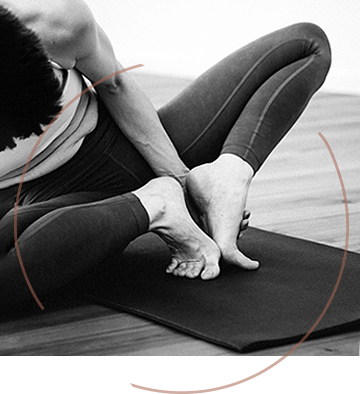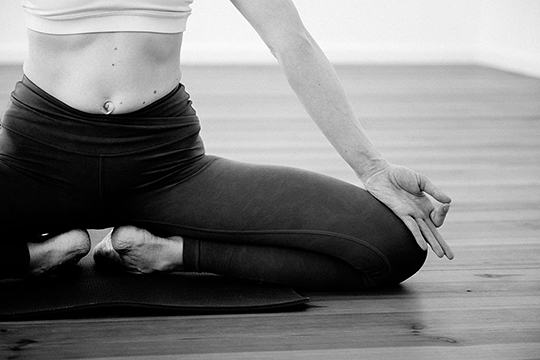Advanced
Guideline for an advanced Yoga practice - some thoughts
‘Advanced’ has nothing to do with postural proficiency. Practicing Intermediate and/or adding some of Third all along with poor breathing, imbalanced alignment, a shaky nervous system and dripping sweat due to over agitation doesn’t mean that a practice is in any way advanced.
Do I breathe? Do I maintain a stable, even Ujjaji breath throughout my practice? Further: Am I breathing Ujjaji altogether?
Do I inhabit my postures from the inside? Do mind and soul meet up with the postures I’m doing? Is my practice solid and anchored on a stable ground? Or am I performing something that was given to me because I am physically capable of doing it?
It doesn’t pay off to cheat yourself on these questions.


A practice must develop cohesively
The process of growing and transformation equally encompasses Mind, Heart and Body. Through practice, your body should develop harmoniously. If you rely on your strong players alone – be it upper body strength or lower back flexibility – sooner or later, you’ll meet pain and injury.

Pain
Pain is an inevitable part of the process. But also, a tricky and very thin line. There is a difference between ‘transformative’ pain and pain caused by improper alignment, restricted awareness, and a pushy attitude cultivated by both student and teacher. Trust your intuition to discern between these two. Transformative pain is intelligent. As soon as you understood what your body/mind/heart wants to tell you with certain sensations, they change or dissolve altogether. Pain caused by misalignment is persistent, cold and sharp. It transgresses the line of ‘shedding your layers’. And it is unnecessary.
Don’t fool yourself. Don’t be blind and dogmatically rely on a system because you were told ‘it is meant to be like that’. Don’t think you need to endure pain in order to get somewhere. A spiritual practice is not to be ‘endured’.
An advanced Yoga practice is nourishing. It has the quality of coming home. In the most unpretentious way, it brings you back to a state of inner balance. If, however, a practice is done without joy and maintained by discipline alone, it misses it’s point and will certainly find a way to break you.
